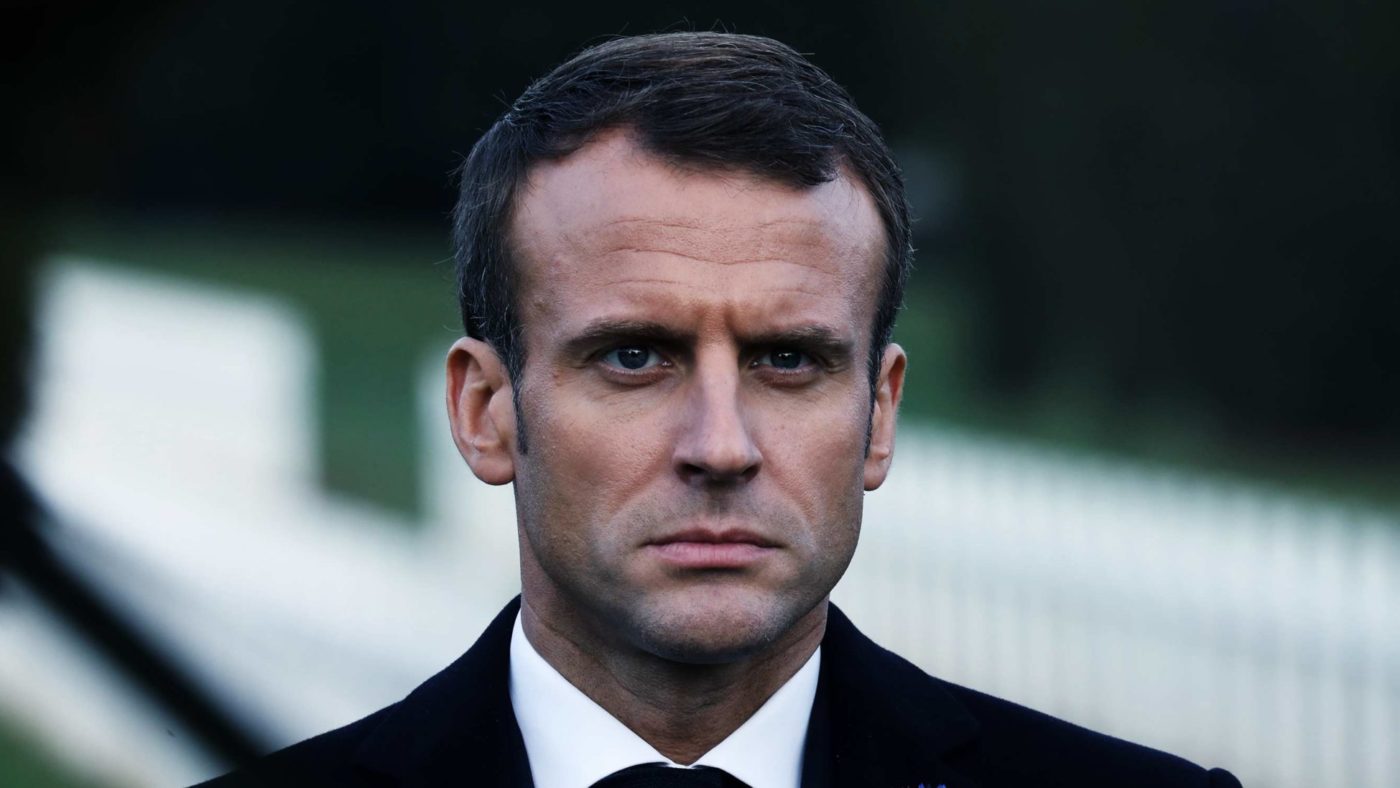During Britain’s EU referendum, Remain campaigners liked to claim that the case for Leaving didn’t just depend on false promises about life after the EU, but also on outlandish claims about the ambitions of EU federalists.
The biggest lie was apparently that there would ever be a European army. The most trenchant dismissal of that idea came from Nick Clegg, who in 2014 described the idea as “a dangerous fantasy”. The notion was, according to the then Deputy Prime Minister, was so far-fetched it was on a par with the idea that “the moonlanding was faked, that Barack Obama wasn’t American and that Elvis isn’t dead”.
If it is a far-fetched idea, it is now also one that has the backing of the President of France. “We will not protect the Europeans unless we decide to have a true European army,” Emmanuel Macron said on Tuesday. “Faced with a Russia at our frontiers that has shown that she can be a threat we need a Europe that defends itself better alone, without just depending on the United States.”
Unsurprisingly, the idea gets Guy Verhofstadt’s seal of approval today. The arch-federalist MEP tweeted: “President Macron draws the right conclusions from Trump’s ‘America-First’ policy. If we want to guarantee our European security, we need to take our destiny into our own hands by progressively integrating European defence forces into a European army.”
There are plenty of powerful European politicians who oppose a “true European army”, but the direction of travel is in the French President’s favour. Last year, 23 countries signed up to a new EU defence cooperation pact, known as Permanent Structured Cooperation or PESCO in the EU jargon. According to EU Foreign Minister Federica Mogherini, this integrationist step marked “a historic day for European defence”. Before the ink was dry, French Foreign Minister Jean-Yves Le Drian called for the EU to “go further”.
Clearly, the prospect of a European army is one that should be taken seriously. Which is why the intellectual laziness of Macron’s exaggerated argument is so troubling.
It’s not that adequate European military clout might be achieved more efficiently were nations to pool their resources. Or that such a force might be able to act more decisively than national armies working alongside one another. These are not strong arguments, but they are stronger than Macron’s assertion that a “true European army” is the only way to protect the continent.
If it is true that Europe is incapable of defending itself against Russia, is that because there isn’t a unified army or because of the NATO countries in Europe that have consistently failed to meet their commitment to spend 2 per cent of GDP on defence?
Why would troops and resources organised under a European flag be able to do the job that the same forces under the flags of allied European nations would not? And why is this a tolerable infringement on national sovereignty? (It is also worth asking why someone apparently so worried about America shirking its NATO responsibilities is taking such a hard-line in the Brexit negotiations with France’s most important ally.)
Macron finds himself in accidental agreement with Donald Trump. The US President is fond of saying that NATO is “obsolete”. The French President accepts this premise. It is certainly a fashionable view, but is it right?
The EU has certainly done a better job than NATO at claiming credit for past successes. It even won the Nobel Peace Prize in 2012 for “probably the most dramatic example in history to show that war and conflict can be turned so rapidly into peace and cooperation”. NATO has been at least as important in transforming a war-torn continent into a peaceful one.
As for the present, Dalibor Rohac has argued for CapX: “Notwithstanding decades of American cajoling and the EU’s self-professed desire to become strategically independent, few European governments are willing to invest real resources into their militaries… Without substantial increases in defence budgets, common initiatives such as PESCO, or a close cooperation between the UK and the EU after Brexit, will not make a strategic difference.”
The same is surely true of the European defence coalition unveiled in Paris today.
Ten European countries – Finland, Germany, Belgium, Denmark, Estonia, the Netherlands, Spain, Portugal, Britain and France – have signed up. The move, which is a far cry from the single European army of Macron’s dreams, may – as one official put it – improve “interoperability between the participating countries”. But this too will be little comfort to those rightly concerned about levels of military expenditure across Europe.
For the Baltic states, where the Russian threat feels rather more real than in Paris, greater cooperation of the sort announced today is one thing. Writing off the existing defence architecture and replacing it with a European army is altogether more alarming. Nils Muiznieks, a Latvian-American political scientist, recently told the Economist that “talk of strategic autonomy scares the hell out of us”.
Europe remains a long way from replacing America’s military capacity. The post-Atlanticist talk of Macron and others is, at the very least, dangerously premature. And it is hard to believe it is driven by concern for Europe’s pressing security concerns and not the French President’s federalist ambitions.


